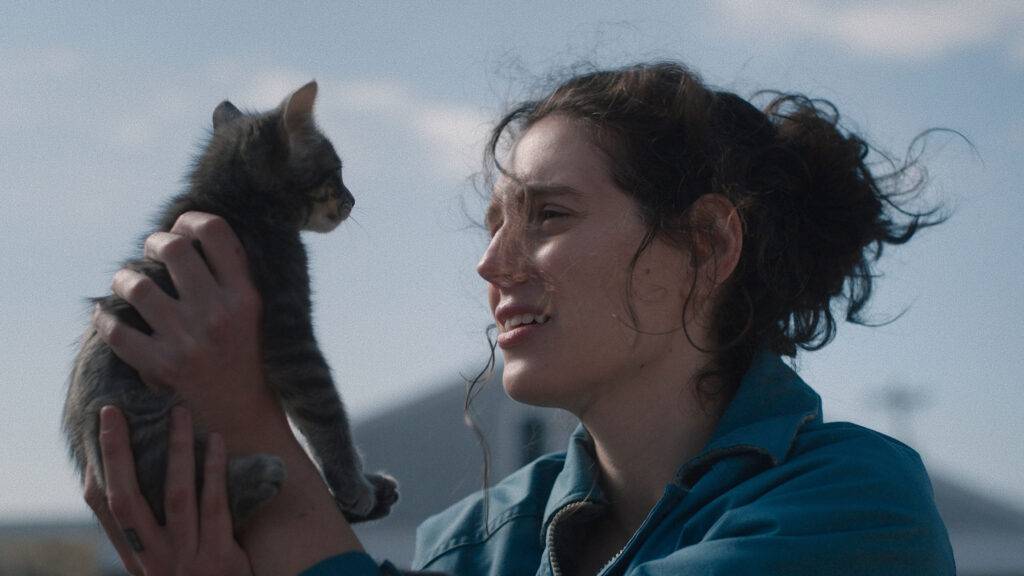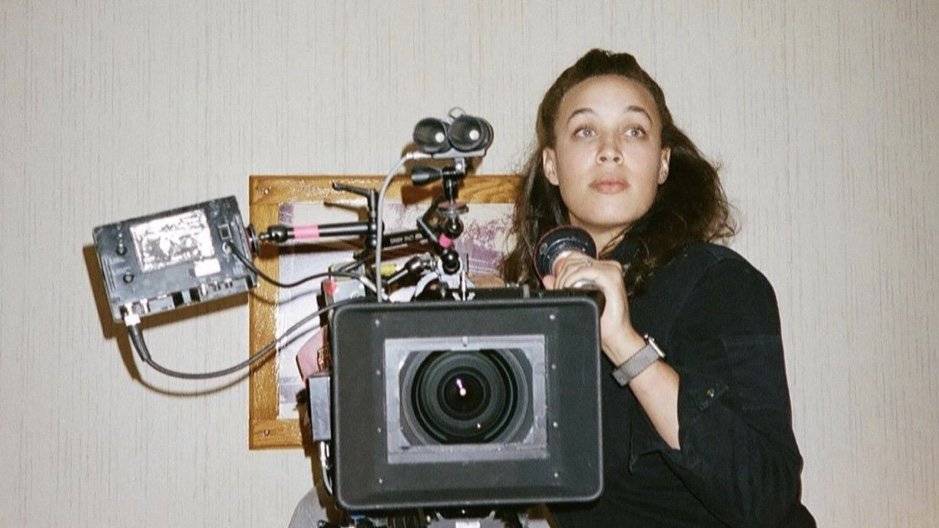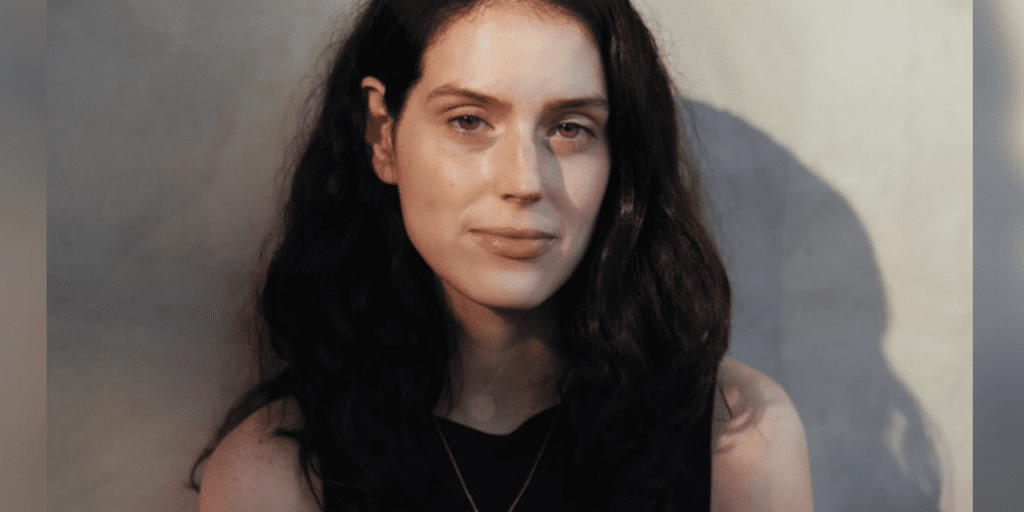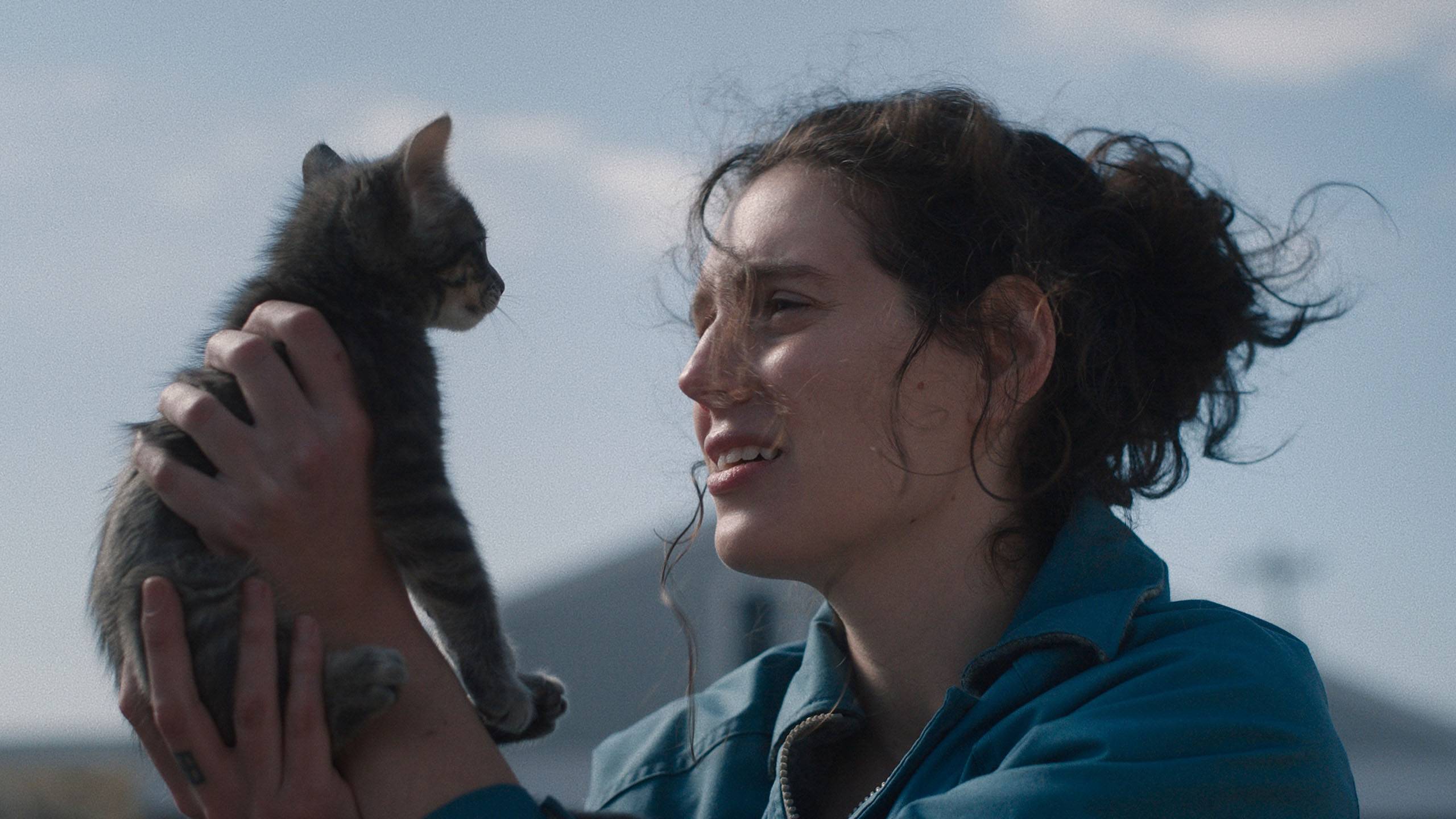Eva Victor’s Sorry, Baby: A Perfectly Restrained Exploration of Trauma
Eva Victor’s Sorry, Baby is a remarkable debut – a film that manages to be deeply unsettling while also ruthlessly funny. As a first feature, it’s subtle execution but still ambitious in its thematic exploration, blending trauma, identity, and social expectations with an unflinching honesty, setting Victor up as the filmmaker to watch out of this year’s Sundance Film Festival.
I was invited to vote in the IndieWire Critics Awards, and my ballot seems to mirror many of the other 175 critics, with Sorry, Baby sweeping multiple categories, including Best Film, Best Director, Best Screenplay, and Best Performance for Victor herself. While it’s sometimes difficult to predict a film’s success after Sundance, this is surely a project you will hear more about. In this review, you’ll also hear from the DP of Sorry, Baby, Mia Cioffi Henry who I chatted with before the premiere. You can read the full interview here.
What is Sorry, Baby About?

From the opening shot, Sorry, Baby establishes a tone of quiet dread. Cinematographer Mia Cioffi Henry and Victor frame Agnes’ house in a vast, dark night, its lights on but positioned toward the bottom of the frame, almost swallowed by the emptiness around it. This visual composition immediately introduces Agnes’ isolation, a theme that lingers throughout the film. The slow pacing builds unease, particularly in the first chapter, where we know something “bad” has happened – we just don’t know when or how it will strike.
If you’re only interested in one (storyelling or the technical craft), you’re leaving a lot on the table in terms of creating emotional images – DP Mia Cioffi Henry on finding balance as a cinematographer
The film’s structure is cyclical, following Agnes (played by Victor) over the course of five years as she attempts to navigate the aftermath of a traumatic event. As Henry explains, Sorry, Baby is about someone struggling to get unstuck: “My mother has a saying: ‘It’s not what happens, it’s what happens next.’ She says it to me all the time, and it’s the idea that we have to find a way to cope and move forward. Agnes doesn’t have someone saying that to her, so she has to dig herself out throughout the film.” While Agnes has her best friend Lydie (played by Naomi Ackie) to lean on at times, they are in places – both geographically, but also in terms of their place in life. Because of this, the reprieves of this feeling of isolation are short-lived.
Eva Victor and her Use of Humour in Sorry, Baby
Victor’s screenplay is razor-sharp, unafraid to make the audience uncomfortable. One of the most powerful sequences involves Agnes explaining the “something bad” to Lydie in a long, locked-off shot that forces viewers to stay in the moment with her. The film never indulges in melodrama; instead, it presents pain as it is – messy, complicated, and often masked through Agnes’ dark humour. This dark and dry humour is a hallmark of Victor’s (both in the film and otherwise) and shines a light on one’s use of humour as deflection and an attempt to escape. This punctuates the film’s heavier themes and makes the ultimate impact of Agnes’ trauma increasingly meaningful, as the audience is lured into a false sense of security. This is a delicate balance, but Victor is ultimately successful in illustrating a portrait of trauma but also a satire of gendered expectations. She subtly critiques the systems and behaviours we passively accept, exposing the absurdity of certain behaviours and organizational policies.
Mia Cioffi Henry and the Cinematography of Sorry, Baby

Henry’s cinematography plays a crucial role in Sorry, Baby’s emotional impact. She describes her approach as a careful balance of storytelling and technical craft: “If you’re only interested in one, you’re leaving a lot on the table in terms of creating emotional images.” Her background in production design clearly informs her attention to space and how characters interact with their environments. Oftentimes, Agnes is forced to the bottom or the side of a frame, seemingly overwhelmed by the world around her. There is no reliance on quick cuts or intense dolly-zooms. Instead, Victor and Henry are unafraid to hold a shot, or slowly creep closer to our subjects. This restraint is one of the film’s most important qualities, which is a testament to Victor’s confidence in her storytelling.
“It wasn’t like we made this movie and they came on at the end and got us into Sundance. It was about developing the idea, developing the script, developing the team” –DP Mia Cioffi Henry on the Impact of Barry Jenkins and Pastel
During the film’s preparation, Henry and Victor meticulously mapped out visual motifs. One of their most revealing exercises took place at the Marlton Hotel in Manhattan: “We decided to read through the first description of each chapter. As soon as we finished, we would look each other in the eyes and say a colour. And we’d see if we could say the same colour that defined the chapter. We had five different chapters, and we ended up with five colours—all exactly the same.” This synchronization between director and cinematographer is evident in the final product, where each chapter has a distinct visual and emotional shift while maintaining a cohesive narrative.
Every film has a heartbeat, a reference point for its creative team. For Sorry, Baby, that influence was Kelly Reichardt’s Certain Women. Henry explains, “There was something about the pensive nature of these women and the heartbreak each goes through, being able to see it coming, but it still hurting. We would call upon that, recognizing certain emotional cores.” Like Reichardt’s work, Sorry, Baby doesn’t rely on grand, dramatic gestures but instead finds power in quiet moments, unspoken emotions, and the weight of time passing.
Barry Jenkins, Pastel, and the Production of Sorry, Baby

One of the most significant factors in Sorry, Baby’s success is likely the involvement of Barry Jenkins and his production company, Pastel. Jenkins discovered Victor through some of the videos she created on Twitter during the pandemic, and is yet another example of the ability of Jenkins (and the rest of Pastel) to pick out rising talent. They have also produced films like Aftersun and All Dirt Roads Taste of Salt with other emerging filmmakers, Charlotte Wells and Raven Jackson (both of whom were one year below Mia Cioffi Henry at the NYU Tisch School of the Arts). Henry was quick to praise Pastel’s hands-on approach: “It wasn’t like we made this movie and they came on at the end and got us into Sundance. It was about developing the idea, developing the script, developing the team. They were thoughtful and didn’t impose ideas on us.” Not only did having this production team help create the polished Sorry, Baby a distribution deal from A24.
At this year’s Sundance Film Festival, Sorry, Baby stood out among the indie gems, reaffirming the importance of intimate, character-driven storytelling in an era dominated by blockbusters and prestige television. Henry sums up the film’s impact best: “This film has a smart script, amazing performances, and is full of heart and intention in every corner of the process. Putting that on-screen and showcasing it at Sundance is a real pleasure. We need more of those.”
With Sorry, Baby, Eva Victor has proven herself as a formidable new voice in independent cinema, and if this debut is any indication, her career is just beginning.
Read More:
What to Know About Sorry, Baby
What is Sorry, Baby about?
Sorry, Baby follows Agnes (played by Eva Victor) as she struggles to get “unstuck” after experiencing a traumatic event.
The story is told cyclically, split into five chapters representing different years of Agnes’ life.
Who directed Sorry, Baby?
Sorry, Baby was directed by Eva Victor.
Who wrote Sorry, Baby?
Sorry, Baby was written by Eva Victor.
Who stars in Sorry, Baby?
Sorry, Baby stars Eva Victor as Agnes, alongside Naomi Ackie (Lydie), Lucas Hedges (Gavin),
Louis Cancelmi (Decker), Kelly McCormack (Natasha) and John Carroll Lynch (Pete)
Who is distributing Sorry, Baby?
A24 acquired distribution rights for Sorry, Baby for $8 million after outbidding Neon, Searchlight, and MUBI.
When is Sorry, Baby Coming Out?
Sorry, Baby premiered at the 2025 Sundance Film Festival on January 27, 2025. No details have been released from
A24 on Sorry, Baby’s wide release. It is expected to be released widely in late 2025.




